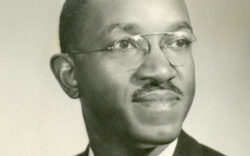The interim between the end of football recruiting and the start of spring practice is a season of unremitting funk for the Ol’ Bloviator. One of the reasons that his funk refuses to remit is that when nobody’s playing or practicing, he is more prone to move back a step or two and take a harder look at some of the more troubling off-field aspects of this now thoroughly commercialized amateur pastime that, most of the time, despite himself, he loves way too uncritically.
For instance, we here at UGA have just seen fit to bestow a modest $400,000 pay increase on head football coach Mark Richt, who had been struggling heretofore to get by on a paltry $2.8 million. Hopefully, Mr. Richt will now feel loved and motivated enough to go out and give our lads another season’s worth of hugs and thwacks on the buttocks sufficient to inspire them to give their all for the old Red and Black. If this is not incentive enough, perhaps an additional $800K in performance bonuses will do the trick.
Apparently, we had to give Richt a little boost in pay simply to avoid the mortal embarrassment of having his salary cease to seem “competitive” in the Southeastern Conference, where football is not simply the tail that wags the dog but the whole big ol’ dog, who wags his tail and does whatever else he chooses whenever and wherever he by God chooses. Why, even with that nice little bump, our guy is still only the fourth-highest-paid SEC coach—some $350K behind the Evil Genius in Columbia and more than $1 million down to Coach Bizzaro in Baton Rouge and an absolute piker, of course, compared to the diabolical Nick Saban ($5.3 million) over there in Tusky Town. Never mind whether Richt’s actual performance is competitive with the guys ahead of him, each of whom has won at least one national championship and two of whom have done so in the last five years, while, over the same span, Richt is 1-12 against SEC opponents who finished their seasons in the top 25. Regardless of their perceived value to their respective sports programs, where their respective academic units are concerned, none of these guys is worth anything remotely close to what he is making. If you are going to dispute this contention—be my guest—so long as you come armed with some hard numbers instead of the standard unsubstantiated assumption that successful sports teams must surely bring in a lot of money for the book-learning enterprise. The OB has been hearing this for damn nigh 40 years, but he has yet to see it validated by a single significant entry in the ledger. Oh, by the way, did the OB mention that Richt’s new salary is more than seven times—that’s right, seven times—what brand new UGA president Jere Morehead will be paid?
The “out-of-whackness” of this situation pales dramatically, however, in comparison to the god-awful mess they’ve gotten themselves into up yonder on Rocky Top, where the University of Tennessee’s Athletic Department has managed to get itself more than $200 million in debt with less than 1 percent of that amount left in its reserve fund. If you will indulge the OB in a little number crunching, this means that the Athletic Department is now forking over about $21 million a year just to service its debt! A reported $13.5 million of this tidy little sum comes out of the $99.5-million athletic budget, and the rest ($7.5 million, for the math-challenged among you) must be raised through donations, which, by the way, were down 25 percent ($10 million) in 2012.
Of the accrued Kilimanjaro of debt to date, $11.4 million can be chalked up to the costs of buying out the contracts of several fired or edged-out coaches and administrators all of whose salaries were, of course, also “competitive.” On top of that hefty figure comes this year’s additional obligations to the recently dispatched head football coach Derek Dooley ($5 million) and his staff ($2 million). Coincidental or not, it is surely symbolically significant that the $7 million required to salve the sting of separation for the banished Dooley crew is precisely the same figure that the Athletic Department had been transferring yearly into the university’s general fund, where at least some of that loot may have actually trickled down sufficiently to support the school’s academic endeavors. As of now, however, with the agreement of the school’s chancellor, that annual transfer has been suspended for up to three years.
Tennessee has spent nearly $300 million on its athletic facilities in the last decade, more than half of which went into renovating Neyland Stadium ($130 million) and a new football training center ($38 million). Beyond that, the “improvements” to the stadium undertaken since 2006 are said to tally up to right at $130 million. These dire financial circumstances are exceptional in a conference where athletic department reserve funds typically run north of $50 million, but what happened in Big Orange Country nonetheless strikes the OB as a cautionary tale with broad implications. With the football program riding high after the Peyton Manning era and a national championship in 1998 (a year after Peyton departed them thar hills), Tennessee administrators thought they were betting on a sure-thing future by giving the team and fans a 104,000-seat playground (give or take a tuckus or two) every bit as spacious as the ones in Ann Arbor and Happy Valley.
Sure enough, the investment seemed to pay off big time with home attendance averaging at or very near 107,000 per game between 2000 and 2005. Since that point, however, the slippage in the team’s performance and ranking has met with a comparable slippage of faith among what once was as devoted a flock as ever painted themselves hideously orange. Not only did donations take a nosedive in 2012, but average attendance sank to 89,965, marking the first time it had fallen below 90,000 since 1979. Looking to win back the roughly 17,000 additional fannies needed to fill the stands, Tennessee has begun offering tickets to “young alumni” at a discount and has set aside some 1,500 seats to be available sans the additional oxymoronic required “donation” that is SOP at most big-time football schools. Whether this will trigger a major stampede back to the fold remains to be seen, but for Vols AD Dave Hart, dogpaddling in an ocean of red ink, it damn sure better.
Although both donations and ticket sales are down nationwide, no such athletic budget woes plague us here in Athens, where we have about a $70 million reserve and are apparently augmenting it by finishing in the black each year. Yet athletic director Greg McGarity has also launched a “young-alumni” ticket initiative for reasons perhaps somewhat different from those given at Tennessee. These tickets will be deducted from our previous allotment for students. In UGA’s case, it seems that we are seeing a decline in student interest in attending football games. With nearly 18,000 seats available to them, over the last five years, our eager young scholars have mustered a maximum turnout that still fell nearly 2,500 short of the max. Last year, it seems, even at $8 a pop, the average number of student tickets scanned was but 11,802.
By the OB’s estimation, the number who actually made it into the stadium by kickoff or even the second quarter was considerably short of that, especially if game time fell earlier than 3:30 p.m. An absolutely de rigueur Greek partying regimen and a lively local music and bar scene, not to mention the beckoning flesh pots scarcely an hour away over in Atlanta, are definitely factors here. There is also the reality that some 60 percent of our students hail from metro Atlanta these days, and a lot of them, if not transplants themselves, are the progeny of such, and therefore have no family legacy at UGA stretching back several generations. As I recall, a contingent from one of the leading fraternities hereabouts blew off UGA’s division-clinching game with Auburn in 2011 in order to take in a concert in Columbia.
There are broader societal factors, too. A big screen HD-TV and comfy recliner are as conducive to inertia in a frat house as in a suburban McMansion. Thusly does television give on the one hand and take away with another. In the short run, at least, the cost of some of the lost ticket renewals is easily offset by the great gobs of money spewed out annually by the networks for the rights to televise these gladiatorial spectacles. Latest estimates put the SEC’s total potential take from its renegotiated deals with CBS and ESPN at $300 million, and suffice it to say, it can’t come soon enough for the folks in Knoxville.
Even so, the OB can’t help but wonder if, in banking so heavily on an uninterrupted flow of big bucks from the broadcasters, college football in general isn’t currently positioned to fall prey to delusions of ever-expanding prosperity and suffer what amounts to the Knoxville debacle writ large. For example, do the high definition and cyber-centric amusement preferences of UGA students and young people in general portend ill for the future of college football as a significant connection to place and identity? Watching an entire football game on the tube is challenging enough for today’s severely truncated attention spans, much less following one on your IPhone while fielding an incessant barrage of tweets and (OMG!) texts.
Today’s conference realignment craze may be sucking in all kinds of TV money right now, but it could eventually lead to fewer fans on campus because there are fewer games each year that “matter” to them emotionally. In a world that is so geographically unhinged that Texas regularly plays West Virginia but never plays Texas A&M and practically every game is televised somewhere and many of them everywhere, will emotional attachments to the on-campus scene be enough to keep the turnstiles clicking? If they don’t, are folks going to keep sending their money someplace they no longer go themselves? The Ol’ Bloviator sincerely hopes this is just another one of his paranoid Doomsday scenarios. In any event, the prospect is still not nearly so fearsome—or likely—as going into the Clemson game with five starters suspended.
Like what you just read? Support Flagpole by making a donation today. Every dollar you give helps fund our ongoing mission to provide Athens with quality, independent journalism.










